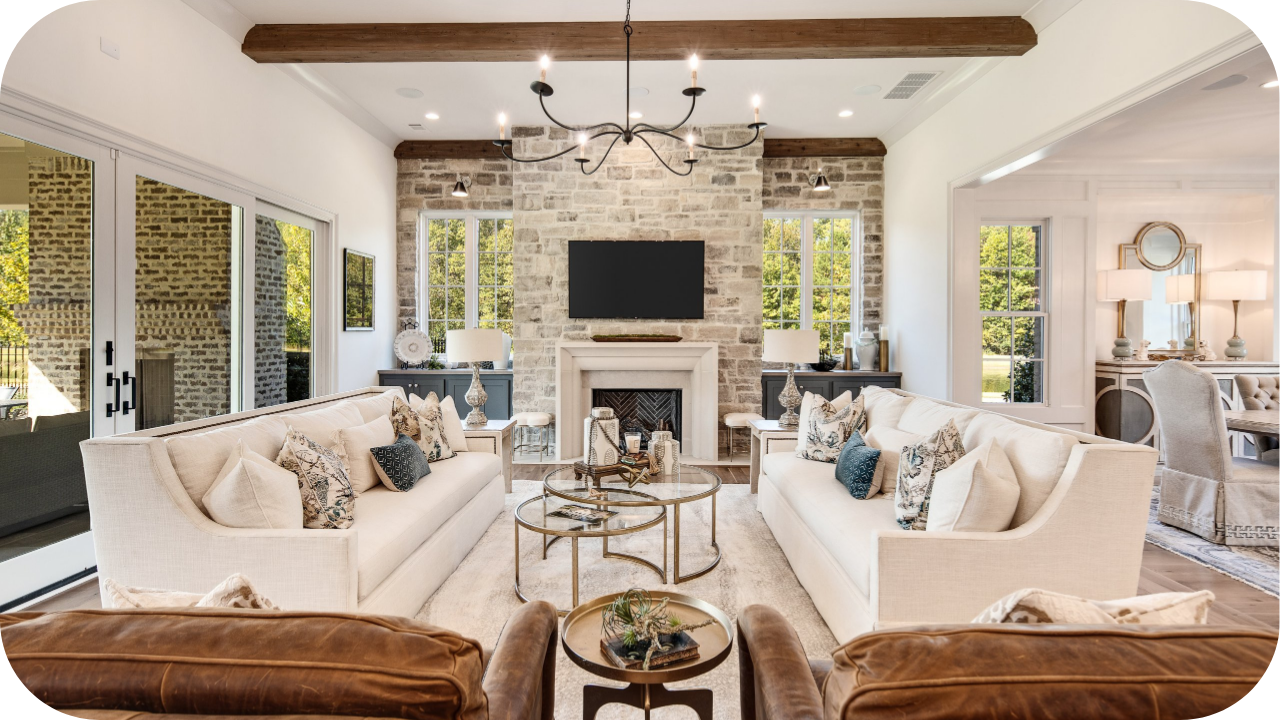
Renovating with stone can elevate a home’s aesthetic but often at a steep cost.
The high price tag of popular stones like marble and granite can deter homeowners, leaving them to settle for less appealing alternatives or exceed their budgets.
This article unveils cost-effective stone options that deliver both beauty and durability.
Explore affordable choices such as engineered stone, slate, and travertine that provide the upscale stone look without straining your finances.
Elevate your home’s interior with these savvy selections.
Benefits of Using Stone in Home Renovations
Using stone in home renovations offers a multitude of benefits that extend beyond mere aesthetics. Stone brings durability, longevity, and a timeless elegance that can significantly enhance any space.
Here are some key advantages of incorporating stone into your renovation projects:
- Durability: Stone is renowned for its robustness and resistance to wear and tear. Materials like granite and slate are particularly hardy, resisting scratches and cracks, which makes them ideal for high-traffic areas such as kitchens and hallways. Their ability to withstand the rigours of daily use ensures that they remain functional and beautiful for years.
- Increased Property Value: Stone installations can elevate a home’s market value. Natural stone features like marble countertops or travertine floors are highly sought after in the real estate market, often yielding a higher resale value due to their luxurious appeal and quality.
- Eco-Friendly: Many types of stone, such as limestone and sandstone, are natural, non-toxic, and can be sourced locally, reducing environmental impact. Their longevity also means less frequent replacements, contributing to a reduction in construction waste.
- Versatility: Stone’s colour, texture, and form variety allows for integration into any design aesthetic. Whether creating a rustic feel with tumbled stone or a modern look with polished quartz, stone can be adapted to suit any style, enhancing your home’s overall cohesion and appeal.
- Maintenance: While some stones require regular sealing and specific cleaning methods, their overall maintenance can be less labour-intensive than other materials like wood or carpet. This ease of maintenance and durability make stone a practical choice for busy households.
Factors Influencing Cost-Effectiveness
Several factors influence the cost-effectiveness of stone materials for home renovations, impacting the initial purchase price and the long-term value. Understanding these can help homeowners make informed decisions about their renovation projects:
- Material Type: Different stones vary significantly in price. For example, granite and marble are often at the higher end due to their desirability and durability, while options like travertine and slate might be more affordable. Engineered stone, composed of natural stone chips and resin, can offer a cost-effective alternative with similar aesthetic appeal and durability.
- Availability: The cost of stone can also depend on its availability. Locally sourced stone typically costs less, eliminating the need for expensive shipping fees. Conversely, exotic stones that require long-distance transportation will be pricier.
- Fabrication and Installation: The complexity of the stone’s fabrication and the difficulty of installation can significantly influence the overall cost. Custom cuts, finishes, and intricate designs require more labour and skill, thus increasing expenses.
- Maintenance Requirements: Stones that need regular sealing and specific maintenance practices may incur higher long-term costs. Conversely, low-maintenance stones, such as quartz and porcelain, while more expensive upfront, may prove more cost-effective over time due to reduced upkeep.
- Durability: Highly durable stones like granite may cost more initially but prove cost-effective in the long run due to their longevity and resistance to damage. Investing in a durable stone can reduce future repair and replacement costs.
Cost-Effective Stone Options
Engineered Quartz
Engineered quartz offers a cost-effective alternative to natural stone, combining durability, affordability, and versatility.
This manufactured stone is made from crushed quartz mixed with resin, providing a uniform appearance and robust structure that withstands daily wear and tear.
It resists staining and scratching and is ideal for kitchen countertops, bathroom vanities, and flooring.
With a wide range of colours and patterns, engineered quartz can adapt to any design style, making it a popular choice for those seeking a high-end look without the high-end price tag.
Porcelain Tile
Porcelain tile is remarkably cost-effective for flooring, walls, and countertops.
Known for its durability and low maintenance, porcelain is highly wear-resistant, making it suitable for high-traffic areas.
It comes in various designs, including those that mimic natural stone like marble and slate, offering the aesthetic appeal of more expensive materials at a fraction of the cost. Its water-resistant properties also make porcelain a practical choice for bathrooms and kitchens.
Travertine
Travertine is a budget-friendly natural stone that brings warmth and timeless appeal to any renovation project.
Its distinctive pitted surface and earthy tones make it suitable for flooring, backsplashes, and shower surrounds.
Travertine is also versatile, available in several finishes, from matte to polished, allowing it to blend seamlessly into various decor styles while offering considerable savings compared to other natural stones.
Slate
Slate is an affordable natural stone that offers distinctive texture and robust character to home renovations.
Its natural durability and resistance to fading make it suitable for indoor and outdoor applications, including flooring, roofing, and accent features.
Slate’s rustic yet elegant appearance, rich tones and natural cleft surface, can add a dramatic touch to any space.
Its ability to maintain its integrity in fluctuating temperatures makes slate a practical choice for areas experiencing varying climate conditions.
Tips for Cost-Effective Stone Renovations
Achieving cost-effective stone renovations requires strategic planning and informed decisions. Here are essential tips to ensure your stone renovation project is both affordable and impactful:
- Compare Suppliers: Source quotes from multiple stone suppliers to find the best deals. Prices vary widely, so comparing options helps identify the most cost-effective sources without compromising quality.
- Choose Local Stones: Opt for locally sourced stones to reduce transportation costs, which can significantly impact the overall price. Local stones are also better suited to the regional climate and architectural style, adding to your renovation’s aesthetic and functional value.
- Use Remnants: Consider using remnants from larger jobs for smaller projects like vanities or islands. Suppliers often sell these at a reduced price, making them a budget-friendly option for incorporating high-quality stone into your design.
- Opt for Simpler Designs: Complex cuts and custom designs increase fabrication costs. Simple, straight cuts reduce waste and labor costs. Opting for standard sizes and avoiding elaborate patterns can lead to significant savings.
- DIY Some Steps: If you’re handy, consider doing some installation work yourself, such as laying tiles or applying sealant. However, ensure you understand the process fully to avoid costly mistakes that could negate the savings.
- Prioritise Impact Areas: Focus on key areas where stone will significantly impact, such as kitchen countertops or entryway flooring. This selective approach allows you to allocate your budget to areas that enhance your home’s value and aesthetic appeal.
Conclusion
Explore the affordable elegance of stone in your next home renovation.
You can transform your space without exceeding your budget by choosing cost-effective stone options and applying innovative renovation strategies.
Start planning today and discover how stone can add value and beauty to your home, making every dollar count.
More To Explore

Stone Accents: Adding Charm to Modern Interiors with Natural Stone
Modern interiors seek a balance of style, durability, and uniqueness. Natural stone accents are a game-changer, adding timeless elegance and character to any space. As

Natural Stone Features That Will Transform Your Living Room
Natural stone elevates any living room with elegance, texture, and timeless appeal. Its versatility allows it to enhance both modern and traditional spaces. From stone


